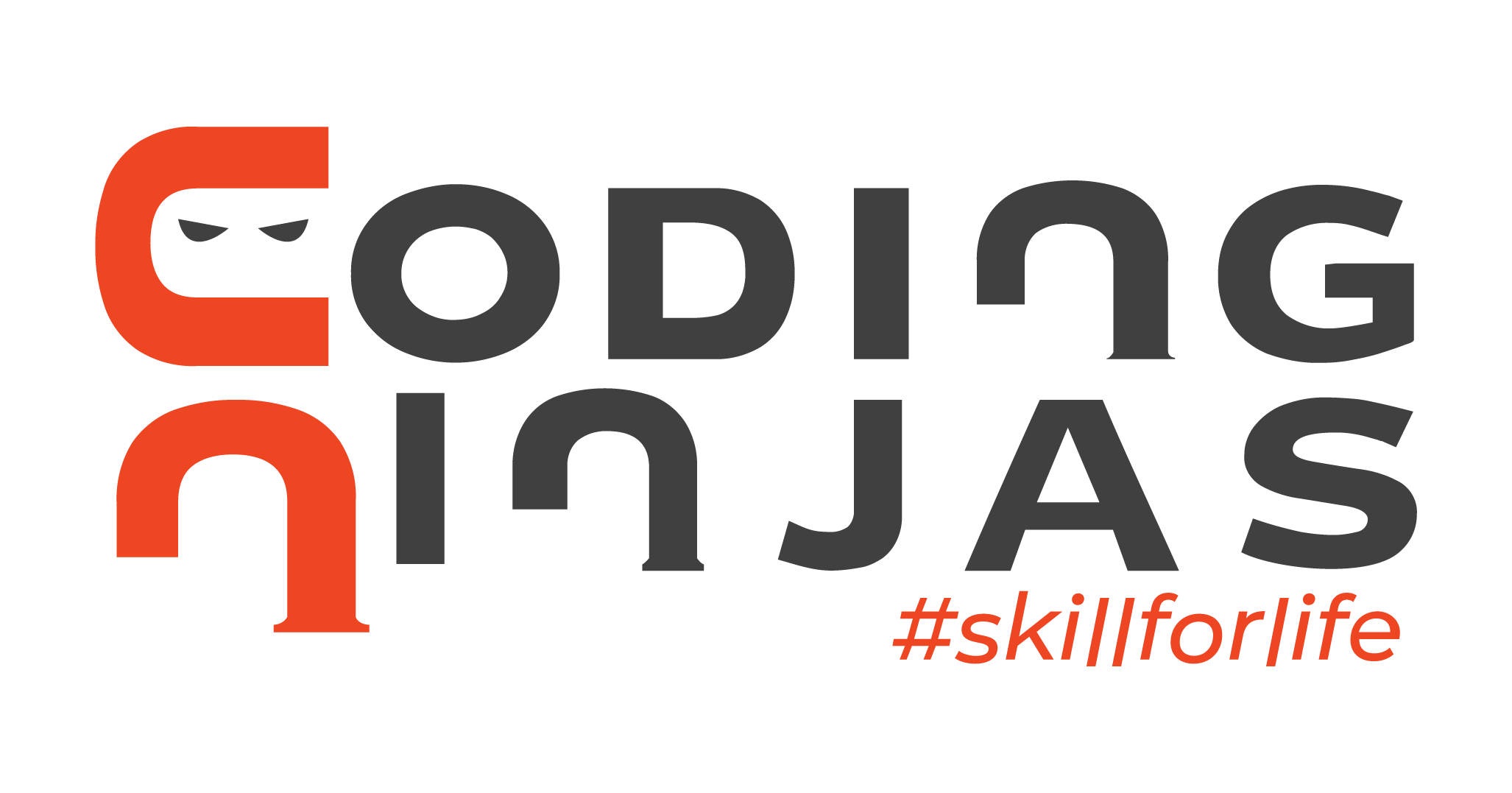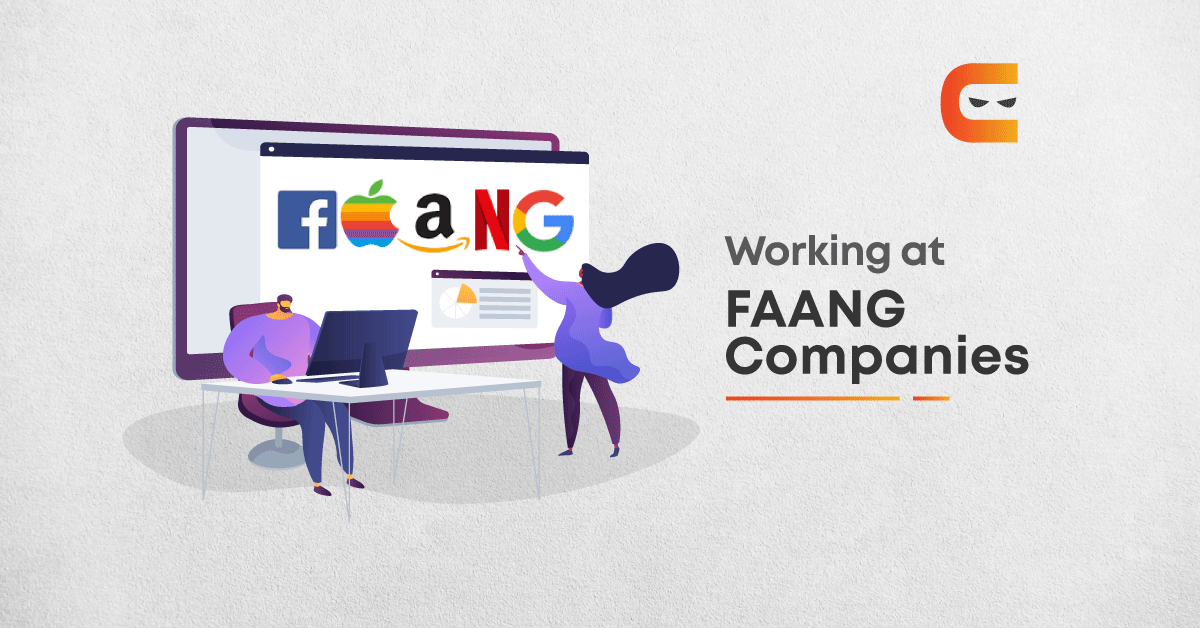Table of Contents
Introduction
Large product-based companies might be a great choice for many budding programmers, however, for many employees, smaller firms, startups and Indian corporations seem like a much better choice. There are multiple factors that influence the choice of companies that are suitable for certain individuals.
Some people are meant to perform better in startups while some human assets will be able to project their peak performance in larger MNCs where one is tasked with a particular job but is required to perform his or her job roles much more extensively.
Even among MNCs, FAANG companies are above the rest in terms of value and presence but they have certain conditions that do not justify skilled employees choosing them among the rest.
There are certain goals and learning requirements that cannot be fulfilled effectively while working in FAANG companies, many of these elements determine joining companies other than these five to be a better choice.
What is FAANG?
“FAANG” is an acronym that stands for the first letters of five huge product-based companies. These companies have been performing incredibly well for the last few years and have been grouped together as FAANG to represent the top-performing corporations.
These companies are, namely, Facebook, Amazon, Apple, Netflix, and Google. These companies perform so well and their products are used by so many customers around the world that if these companies together could form a country, it would be the 10th largest economy on this planet.
These companies are economic powerhouses and acquired a combined Net Income of $121.5 billion in the financial year of 2019.
A point to be noted, Microsoft is a part of FAAMG and not FAANG. It replaces Netflix in the new grouping as Microsoft is truly one of the biggest companies ever. Microsoft has performed extremely well since 2014 after a decade of hibernation and has been incorporated separately into “FAAMG”, which was termed by Goldman Sachs. Even though Microsoft is a part of “Big Tech” or the “Big 4” and “Big 5” companies of the IT world, it is not a part of FAANG.
Issues with the FAANG Trend
The FAANG trend has caused massive confusion within the minds of freshers as well as experienced candidates. This is due to the impression that one must definitely get into one of these 5 companies in order to succeed in life or in the Information Technology field.
The problem with this trend mainly originates from the prioritising of which companies to aim for. Certain companies prove to be much better for specific individuals, especially those who wish to go into other fields or those who need special attention and mentorship. FAANG companies definitely provide great opportunities to learn and have great managers or mentors, however, the attention one gets in smaller companies is much more focused.
Smaller companies and Indian companies also allow employees to understand how products or services are perceived and open up much scope for learning. Unlike the FAANG companies, which have products and services which are already tried and tested, other companies allow new experiences and opportunities to analyse the market reaction.
These massive five companies have a huge set of employees working on certain projects and this denies freshers and less experienced candidates the chance to shine among the rest; this is not the case with smaller outfits as growth comes along with performance.
The main issue with the FAANG trend is that many talented or skilled human assets who could have performed much better in other companies are being forced to try for FAANG companies, failing which they are demotivated by peers and institutes.
This should not be the case, as many candidates are suited for other companies and would perform much better in other types of projects. The main issue with this trend is considering not getting into FAANG companies to be failures. This is not the case and there are other huge MNCs and conglomerates who offer many benefits that FAANG companies cannot offer.
Choosing the Right Company
When choosing the right company, one must take certain factors into account. Candidates are definitely advised to take out a pen and paper and write the advantages and disadvantages of joining one of the FAANG companies or any other company of choice.
Programmers, developers and even employees going for other job roles should take factors such as project opportunities, growth, learning scope and career graphs into account before deciding to go for FAANG companies.
If one has other future goals such as starting up a new company or joining another department or field, there is no point in going for one of the FAANG companies just because you were advised to or for the brand name. It would decrease one’s productivity and could also be somewhat a waste of time, especially if that is not the ultimate goal for the person.
For many people, FAANG companies would absolutely not be a waste of time as it would help them grow and reach the places they want to reach, for instance, working in the same department and doing the same things to eventually become the best at that in the same company.
However, for many, FAANG companies can only satisfy them temporarily but will not be able to provide the exposure and different types of experiences needed to achieve other things. FAANG companies concentrate and isolate their departments, requiring employees to do singular tasks on a much deeper level.
This generally would make great employees out of people if they wish to stick to similar job roles, but for others, it would simply be keeping them from many other experiences that they could acquire outside these FAANG companies.
How to Approach Internships?
Internships should be approached through a trial and error method. Candidates are encouraged to do their internships in both types of companies, FAANG companies, and others. This will give you a basic idea of how projects operate within these corporations and also expose the different advantages or disadvantages of working in them.
Things you should keep in mind while applying internship at Facebook.
Candidates should speak to current employees of both FAANG companies and non-FAANG companies in order to understand the work environment and future opportunities better. Internships are a great way of knowing the companies from up close, it is always advised to first finish internships in both types of corporations before deciding upon which type of company to finally join.
Why aiming for FAANG Companies is a Mistake?
Aiming for FAANG companies can sometimes prove to be a mistake, especially when the person in question has certain future goals or learning requirements. Let us check the few main reasons which can prove that joining FAANG companies may be a mistake.
- One might expect to experience a lot of growth and career opportunities in FAANG companies, however, that can turn out to be not true as FAANG companies prefer isolated work environments which are supported by experienced people working in the same department for years to come. This decreases exposure in other departments and also ends up taking more time to grow career-wise.
- FAANG companies have many employees working on the same project and in the same departments, this decreases the chances of individuals shining among the rest. Individuals fundamentally get less opportunity to be known by higher management.
- FAANG companies are product-based companies that are already known and accepted by customers and clients around the world. This removes the requirement of learning how products are perceived by customers and does not provide any scope for learning new things. Products and services offered by FAANG companies are by default accepted by customers and there are very few things that developers can expect to extract out of the market in terms of reaction and feedback.
- FAANG companies host randomized interviews and assessments which depend more on the luck of candidates than their skills.
- FAANG companies are more orthodox in nature, not delving into new things and not taking risks. Other companies are much more comfortable trying new things and they are involved with new innovations.
- FAANG companies provide lesser opportunities in India. Only Amazon and Google exist extensively in India. The number of choices becomes limited when only targeting FAANG companies.
- The individual worth of employees is much more in startups and smaller firms, so one can also join smaller companies in order to be highly valuable to his or her company.
- Individuals get more opportunities to learn and grow in terms of market knowledge and knowledge about other departments as well in smaller corporations.
- Some new companies and other major companies offer much better salaries, job roles, and even stocks to their employees.
- Choosing FAANG companies blindly might lead to missing out on far better offers.
Frequently Asked Questions
FAANG companies are the best performing product-based companies in terms of revenue, net income and turnovers. FAANG companies are not necessarily the best IT companies or companies with the best working environment and job satisfaction. However, in the case of Microsoft, the huge MNC experienced minimal growth for some years before 2014 and became quite static in nature. This was the main reason why Microsoft was kept out of FAANG companies. However, after 2014, Microsoft picked up pace, eventually becoming one of the biggest companies in the world again and took Netflix’s place to form the acronym “ FAAMG”.
No, Microsoft is not a part of the FAANG companies. Microsoft is a part of FAAMG.
Netflix is a part of FAANG as it showed incredible growth in terms of stock price and employees throughout the years. Netflix is one of the biggest IT product-based companies.
The Big five tech companies are Apple, Amazon, Microsoft, Google and Facebook. These are the best of what the IT world has to offer and are each incredibly massive in terms of net worth and customer reach.
The Big four tech companies are Apple, Amazon, Google and Facebook. The Big four tech companies have a combined worth of a whopping $ 5 trillion.
Apple was the biggest tech company in the world in the year 2020 with over 137,000 employees and an enormous net worth of $65 billion. Apple also crossed the $2 trillion mark in terms of market value in 2020.
Amazon has crossed the $1 trillion mark, however, it has still not reached the $ 2 trillion mark such as Apple. Amazon also boasts of an incredible net worth of $ 43.5 billion, however, it is much lesser than Apple’s net worth. Amazon is still a smaller company in comparison to Apple. Regardless of this, many predict Amazon to be one of the companies that could potentially cross Apple someday.
As of 2021, Apple is still the biggest tech company in the world. As a matter of fact, Apple is the biggest tech company ever. Apple has a massive market value of $ 2.2 trillion and has seen an ultra profitable annual revenue of $ 274 billion last year. Apple has almost 150,000 employees working with them currently.
One can go for established companies such as Microsoft, IBM, Wipro, Cognizant, HCL, Infosys, etc. or even reputed startups that interest you.
Key Takeaways
FAANG companies are arguably one of the best corporations in the world, however, care must be taken when deciding upon which company to choose. Many employees might see much more growth in terms of job satisfaction and position in smaller or other big Indian companies.
FAANG companies offer good salaries and job responsibilities as well, but one must also consider if they wish to get stuck in similar projects throughout or try something new. There are many companies outside of FAANG that are huge conglomerates involved in many services and economies.
One must not limit himself or herself to just the five top product-based companies. Candidates should look beyond these five companies and understand what is truly the best for them and then accordingly take the decision.
Being a part of these five companies sounds great, however, there are many other factors that might seem much more desirable for certain individuals.
Candidates should give this a second thought and think about what truly matters.















Leave a Reply